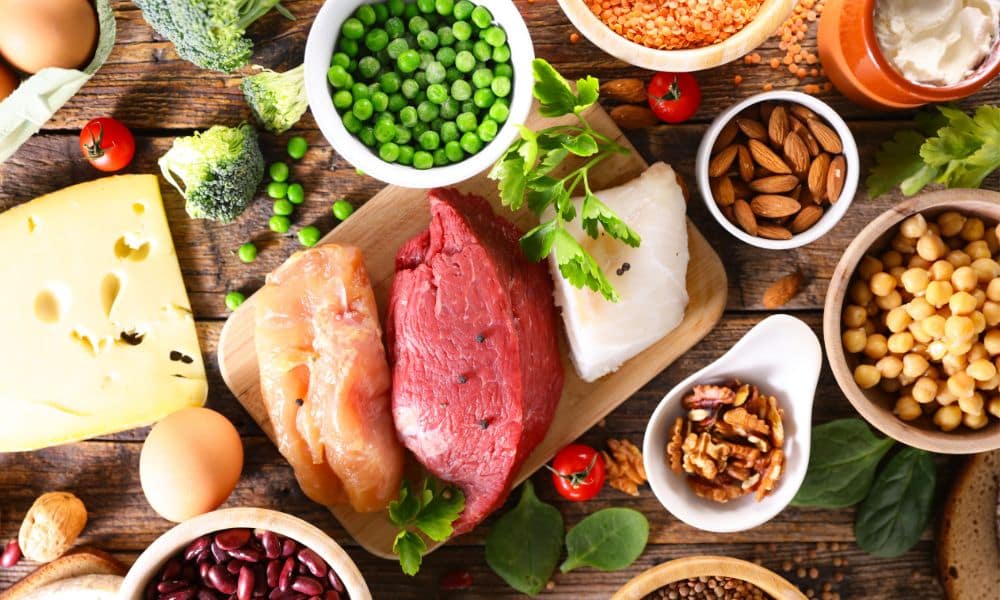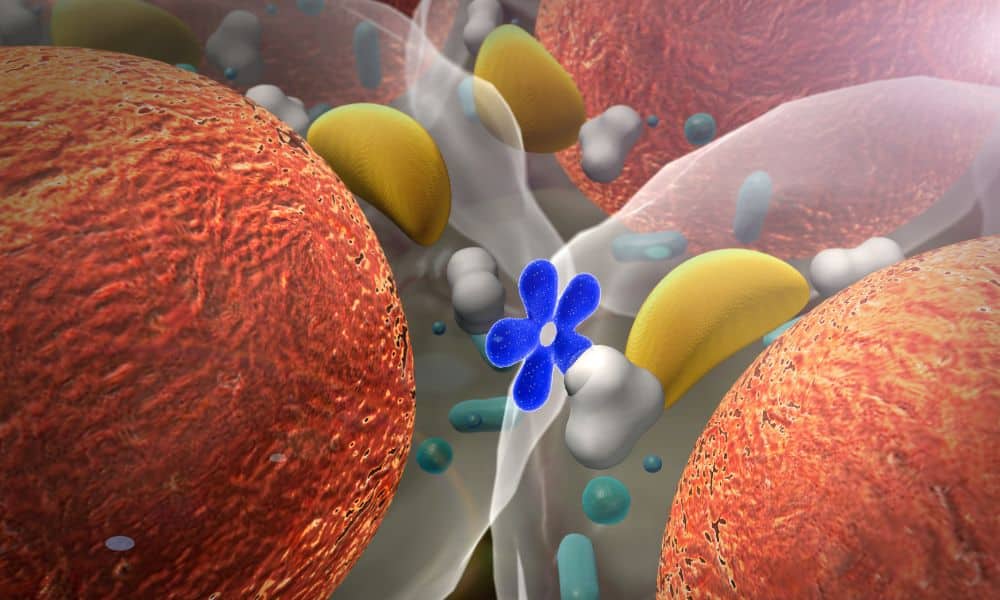Losing weight and keeping it off requires a holistic approach that blends nutrition, exercise, and lifestyle adjustments. By educating yourself on the essentials of a balanced diet, engaging in a structured exercise regimen, and making pertinent lifestyle changes, you can set the stage for sustainable weight loss. Remember, the goal is to lose weight and live a healthier, more balanced life. Patience, persistence, and a positive mindset are your greatest allies on this journey. Therefore, this article will focus on the best scientific, most sound ways for how to lose weight and keep it off.
How to Lose Weight by Fixing Deficiencies in Diet, Exercise, and Activities
Losing weight is not just about cutting calories or working out; it’s about finding a balanced approach that addresses potential deficiencies in your diet, exercise routines, and daily activities. Understanding and correcting these deficiencies can encourage your body to function optimally, adapt better to weight loss efforts, and maintain a healthy lifestyle. This article explores key areas where deficiencies might occur and how adjusting them can aid in effective weight loss.

What Are Common Dietary Deficiencies That Affect Weight Loss?
Many people trying to lose weight focus solely on reducing calorie intake but overlook the importance of nutrient balance. Deficiencies in essential nutrients like protein, vitamins, and minerals can sabotage weight loss efforts by slowing down metabolism, increasing cravings, and causing general fatigue, making it hard to stay active.
Protein:
Adequate protein is crucial for building muscle and burning fat. Without enough protein, your body may start breaking down muscle tissue, slowing your metabolism.
Fiber:
Low fiber intake can lead to poor digestion and increased hunger. Foods high in fiber, such as fruits, vegetables, and whole grains, help keep you full and can reduce overall calorie intake.
Iron and Vitamin D:
Iron and Vitamin D deficiencies can lead to fatigue and reduced physical performance, making regular exercise more difficult.
How Can Exercise Deficiencies Slow Weight Loss?
Exercise is essential for burning calories and building muscle, which boosts metabolism. However, doing too much of one type of exercise or not enough of another can lead to imbalances and inefficiencies.
Cardiovascular Exercise:
Are you doing enough cardio? Cardio burns calories and helps reduce fat, but you may not see the results you want without strength training.
Strength Training:
Are you incorporating strength training? This exercise is crucial for building muscle mass, which burns more calories than fat, even at rest.
Flexibility and Recovery:
Are you neglecting flexibility and recovery? Overlooking these can lead to injuries and burnout, which can reduce your weight loss progress.
What Lifestyle Activities Could Be Creating Weight Loss Deficiencies?
Daily activities other than diet and exercise significantly affect overall energy expenditure and can either support or hinder weight loss goals.
Sedentary Lifestyle:
How often do you move throughout the day? Sitting for prolonged periods can decrease your metabolic rate. Incorporating more movement throughout the day, such as taking stairs, standing while working, or engaging in active hobbies, can boost your overall calorie burn.
Sleep:
Are you getting enough sleep? Lack of sleep can lead to hormonal imbalances that increase hunger and appetite, making it difficult to stick to your diet.
Stress:
How stressed are you? High-stress levels can lead to emotional eating and increase the body’s production of cortisol, a hormone that promotes fat storage, particularly in the abdominal area.
How Does the Body Adjust to Deficiencies, and Why Is Balance Crucial?
When faced with deficiencies, the body makes adjustments that can initially seem like solutions but may exacerbate weight problems. For instance, a calorie deficit might lead to quick weight loss, but if prolonged, it can cause the body to conserve energy and reduce calorie burn, stalling further weight loss.
Metabolic Adaptations:
How does the body adapt to reduced calorie intake? Understanding metabolic adaptation can help you avoid the pitfalls of plateauing after initial weight loss success.
Hormonal Changes:
How do deficiencies impact hormones? Balancing your diet and stress can help maintain healthy levels of weight-regulating hormones like leptin and ghrelin.
Psychological Effects:
How do deficiencies affect mood and motivation? A balanced approach to weight loss can help maintain motivation and prevent feelings of deprivation and burnout.
Addressing and correcting deficiencies in your diet, exercise routines, and daily activities can create a sustainable path to weight loss that enhances your overall health and well-being. Balancing these elements allows your body to function optimally, making weight loss more natural and enjoyable.
Mastering the Math: Lose Weight by Knowing and Adjusting Your Numbers
Losing weight often feels like a battle against unknown forces. However, when you start understanding and adjusting key numerical values related to your diet and physical activity, weight loss can become more predictable and manageable. This article breaks down the essential numbers you need to understand and track to lose weight effectively, discussing how caloric intake, caloric deficits, exercise output, metabolic rates, and body fat percentages play pivotal roles in shaping your weight loss journey.

What Is a Caloric Deficit, and Why Is It Essential?
A caloric deficit occurs when you consume fewer calories than your body expends in a day. To lose weight, you must create a consistent caloric deficit, forcing your body to utilize stored energy for energy, thereby reducing overall body fat. Understanding how many calories your body uses—your Total Daily Energy Expenditure (TDEE). This figure includes all the energy used for bodily functions, from digesting food to powering your physical movements. But how do you calculate your TDEE, and how can you use this number to set your daily caloric intake for weight loss?
How Should You Count Calories In Food?
Counting calories helps you maintain the necessary caloric deficit by giving you a clear picture of your intake. But not all calories are created equal. The quality of the calories consumed can affect how satisfied you feel and how your body processes them. For instance, 200 calories from a donut versus 200 calories from a plate of vegetables and lean protein will have vastly different effects on your body. How can you track your calories effectively, and what tools can help you maintain accuracy in your calorie-counting endeavors?
What Role Does Exercise Play in Weight Loss?
Exercise helps increase the number of calories you burn in a day and improves your overall health and well-being. But how much exercise is enough, and what types of exercise should you focus on to maximize weight loss? Understanding the relationship between different exercise intensities and the calories they burn is key. Additionally, balancing cardiovascular exercises, which burn many calories, with strength training, which builds muscle and enhances metabolism, is crucial. How can you measure the calories burned during exercise, and how should this influence your daily calorie goals?
How Can Metabolism Influence Your Weight Loss Efforts?
Your metabolic rate determines how quickly your body converts food into energy. Several factors influence metabolism, such as age, genetics, muscle mass, and physical activity. How can you boost your metabolism to increase daily calorie expenditure? Simple lifestyle changes, like increasing protein intake and adding muscle-building workouts, can raise your resting metabolic rate. But how exactly do these adjustments affect your metabolism, and what can you do to ensure they work in your favor?
Why Is Measuring Body Fat Percentage Important for Weight Loss?
While your overall weight is a useful metric, understanding your body fat percentage offers deeper insights into the composition of your weight loss—whether you’re losing fat, muscle, or just water. Tools like calipers or high-tech scales can help you track this. How often should you measure your body fat, and what numbers should you aim for to ensure healthy, sustainable weight loss?
Weight Loss Is a numbers game
Weight loss is a numbers game, but you can win by staying informed and making strategic adjustments based on solid data. By understanding and managing the numbers associated with caloric intake and expenditure, exercise, metabolism, and body fat, you set yourself up for successful and sustainable weight loss. Remember, each number provides a piece of the larger puzzle, helping you create a comprehensive picture of your health and progress.
How Prioritizing Weight Loss Can Transform Your Life
Weight loss is often seen as daunting, but when prioritized and approached with a positive mindset and the right knowledge, it can lead to transformative changes in all aspects of life. This article explores how prioritizing weight loss can shape your diet, exercise routines, and daily activities while fostering a healthier, more fulfilling lifestyle. By addressing how these factors interact, we can uncover the keys to successful, sustained weight loss.
Why Is a Positive Mindset Crucial for Successful Weight Loss?
A positive mindset is the bedrock of any successful weight loss journey. It fuels your motivation, helps you overcome setbacks, and reshapes your approach to challenges. But how does a positive mindset directly influence your weight loss outcomes? Understanding the psychological underpinnings of motivation and commitment can reveal why those who succeed in losing weight often start with a mindset geared toward success. This section delves into strategies for cultivating such a mindset and how it aligns with your weight loss goals.
How Does Prioritizing Weight Loss Affect Your Diet Choices?
When weight loss becomes a priority, every food choice becomes an opportunity to move closer to your goal. This heightened awareness leads to more mindful eating practices, better nutritional choices, and a structured approach to meal planning. But what specific dietary changes are most effective for those prioritizing weight loss? Here, we explore how to balance macronutrients, the importance of timing your meals, and how to create a diet plan that promotes weight loss and sustains health and energy levels.
What Impact Does Prioritizing Weight Loss Have on Exercise?
Exercise is fundamental to weight loss, but prioritizing it can sometimes be challenging. How can you ensure that exercise is not just a sporadic activity but a consistent part of your life? This section discusses setting realistic exercise goals, choosing the right type of workouts to maximize fat loss and muscle gain, and integrating physical activity into your daily routine in a natural and enjoyable way. Additionally, it highlights the importance of tracking progress and adjusting your exercise plan to keep challenging your body and preventing plateaus.

How Can Prioritizing Weight Loss Alter Daily Activities and Lifestyle Choices?
Making weight loss a priority influences diet, exercise, and the smaller decisions made throughout the day. Each decision contributes to your overall goals, from taking the stairs instead of the elevator to managing stress levels that might lead to emotional eating. How can small changes in daily activities lead to significant weight loss results? This section provides practical tips for integrating activity into your routine, making healthier lifestyle choices, and using technology and tools to support your weight loss efforts.
Prioritizing how to lose weight is a commitment to Your health and fitness
Prioritizing weight loss is more than just a decision—it’s a commitment to a healthier, more active lifestyle. By fostering a positive mindset, making informed diet choices, exercising regularly, and tweaking daily activities, weight loss becomes achievable and sustainable. Remember, the journey to weight loss is a marathon, not a sprint; patience and persistence paired with the right knowledge and strategies are essential to crossing the finish line successfully.
Unlocking the Fun in Weight Loss: Hacks for Enjoyable and Effective Results
Losing weight doesn’t have to be a grueling process filled with restrictive diets and exhausting workouts. By incorporating a few clever hacks into your routine, you can make the journey enjoyable and see better results. This article explores innovative ways to enhance your weight loss experience, ensuring it is effective and fun.
How Can Gamifying Your Workouts Make Exercise More Fun?
Turning your workout routine into a game can significantly increase motivation and enjoyment. But how exactly can you gamify exercise? One way is to use apps that track your progress and reward achievements. Setting up challenges with friends or joining online competitions can also add a layer of excitement and accountability. Additionally, varying your workouts and setting up mini-goals can keep the daily grind interesting and engaging.
What Are the Benefits of Creating a Reward System?
Incorporating a reward system can help sustain motivation over the long haul. But what rewards are both rewarding and beneficial to your weight loss goals? Non-food rewards, such as a new workout outfit or a massage, can be great incentives. Additionally, setting up small rewards for daily or weekly goals can help keep you on track without compromising your diet. How can you implement a balanced reward system that encourages progress without leading to indulgence?
Can Socializing Enhance Your Weight Loss Efforts?
Incorporating a social element into your weight loss plan can amplify your results and make the process more enjoyable. But how can socializing help you lose weight? Engaging with a community, whether online or in person, can offer support, share tips, and provide encouragement. Planning social activities around physical exercises, like group hikes or sports, can also turn routine workouts into enjoyable gatherings. What are the best ways to integrate socializing into your routine to boost morale and weight loss?
How Does Mixing Up Your Diet Keep Things Interesting?
Eating the same meals daily can quickly become tedious, which might tempt you to stray from your diet. How can you keep your diet exciting and conducive to weight loss? Experimenting with new recipes and healthy foods can keep your palate interested and ensure you get a broad range of nutrients. Themed meal nights, like ‘Taco Tuesday’ or ‘Smoothie Saturday,’ can also add fun and anticipation to meal planning. What strategies can you employ to continuously spice up your diet without falling back into unhealthy eating habits?
Why Is Tracking Progress So Effective in Losing Weight?
Tracking your progress with detailed records of your workouts and meals can provide insights into what works and what doesn’t. But why is this hack particularly effective? Seeing tangible results can be incredibly motivating. Using apps or journals to track your progress helps you stay accountable and makes it easier to adjust your plan as needed. How can you effectively use tracking to measure and enhance your weight loss journey?
Using Hacks to Avoid Deprivation and Monotony
Losing weight doesn’t have to be about deprivation and monotony. By employing these hacks, you can inject fun into your routine, making it easier and more enjoyable to stick to your goals. Each of these strategies offers a unique way to enhance the weight loss process, ensuring you achieve and enjoy your journey to a healthier, happier you. Remember, the key to sustained weight loss is making the process a positive and rewarding part of your daily life.
Decoding Weight Loss: The Interplay of Diet and Fasting
Understanding how your diet and fasting regimens influence weight loss is crucial to developing an effective strategy for shedding pounds. This article delves into the roles that diet and fasting play in weight loss, providing insights into how they can be optimized to work in harmony for better health and quicker results. Here’s a closer look at how you can use diet and fasting to lose weight and transform your lifestyle for sustained wellness.
What Role Does Diet Play in Effective Weight Loss?
The food you eat is the fuel your body uses to function. But how does your fuel choice affect your body’s ability to lose weight? A diet rich in nutrients and low in processed foods can significantly affect your metabolism, influencing everything from your energy levels to your ability to burn fat. What foods should you prioritize for weight loss, and how can you balance your meals to optimize your metabolic health?
How Can Understanding Calories Help You Lose Weight?
Calories are not just numbers—they are a measure of energy. But why is understanding calorie intake and expenditure so important for weight loss? Knowing how many calories your body needs and how many it burns daily is foundational to setting realistic diet goals. How can you accurately calculate your daily caloric needs, and what tools can help you track these numbers to maintain a calorie deficit for weight loss?
What Is Intermittent Fasting, and How Does It Aid Weight Loss?
Intermittent fasting is not just a diet trend; it’s a shift in eating patterns that can significantly impact your metabolism and overall health. But what exactly is intermittent fasting, and how can it help you lose weight? By cycling periods of eating and fasting, your body can optimize energy usage and improve metabolic processes. What are the most popular intermittent fasting methods, and how can you choose the best one for your lifestyle and weight loss goals?
Can Fasting Improve Your Metabolic Health?
Beyond helping you lose weight, fasting can profoundly affect your metabolic health. But how does fasting influence your metabolism? Studies show that fasting improves insulin sensitivity, reduces inflammation, and promotes longevity. How do these changes occur, and what does this mean for your overall health and weight loss efforts?
How Should You Combine Diet and Fasting for Optimal Results?
While diet and fasting offer benefits, combining them effectively can be a game-changer for your weight loss journey. How can you synchronize your eating and fasting schedules to maximize fat loss without sacrificing nutrition or energy levels? Balancing meal timing, content, and fasting intervals can provide a powerful toolset for managing your weight and health.
What is the synergy Between Diet and Fasting?
The synergy between diet and fasting forms a powerful strategy for losing weight and improving health. By understanding the role each plays and how they interact, you can create a personalized weight loss plan that delivers results and supports a healthier, more balanced life. Remember, the key to successful weight loss lies in a consistent, well-planned approach that considers both what you eat and the timing of when you eat it.
Conclusion: Integrating Strategies for Effective Weight Loss
Successful weight loss and maintaining a healthy lifestyle require a multifaceted approach. By addressing deficiencies, knowing your numbers, prioritizing weight loss, employing useful hacks, and understanding the differences between dieting and fasting, you can create a comprehensive plan that leads to effective weight loss and enhances overall well-being.
Addressing Deficiencies: Identify and correct deficiencies in your diet, exercise, and daily routines. Ensuring your body receives all the nutrients it needs and engages in varied physical activities can prevent metabolic slowdowns and enhance your body’s natural fat-burning capabilities. This foundational step ensures that your weight loss efforts are built on a solid, healthy base.
Knowing Your Numbers: Knowledge is power in the journey of weight loss. You can make informed decisions that align with your weight loss goals by understanding and monitoring key metrics such as caloric intake, expenditure, and body fat percentage. This numeric insight allows for precise adjustments in your diet and exercise plans, optimizing the process to better suit your body’s needs.
Prioritizing Weight Loss: Making weight loss a priority means embedding it into every aspect of your life. This doesn’t mean obsessing over every calorie or workout but rather integrating healthy choices into your daily routines. Prioritizing weight loss can transform your mindset, making it easier to stick to a plan and resist temptations that may derail your progress.
Employing Hacks: Utilizing weight loss hacks can make your journey smoother and more enjoyable. Whether it’s meal prepping to avoid unhealthy eating, incorporating intermittent fasting to improve metabolic health, or using technology to track progress, these hacks can provide the extra edge needed to succeed in your weight loss endeavors.
Distinguishing Between Diet and Fast: Understanding the difference between dieting and fasting is crucial. Dieting involves adjusting what you eat daily to create a calorie deficit, whereas fasting focuses on when to eat. Integrating both can be powerful; for instance, combining a balanced diet with intermittent fasting schedules can lead to better insulin sensitivity, higher fat burn, and improved metabolic health.
Incorporating these strategies not only helps shed unwanted pounds but also maintains a healthy weight in the long term. Each element complements the others, creating a well-rounded and sustainable approach to weight loss that respects your body’s needs and rhythms. As you embark on this journey, remember that consistency, flexibility, and a commitment to understanding your body’s signals are key to lasting success.
Read Next…
- Rest and Recovery: How It Boosts Fat Loss and Muscle Growth
- Weight Loss and Body Transformation: Things You Need to Know
- Diabetes and Weight Loss – Things You Should Need To Know
- Simple Ways to Jumpstart Your Weight Loss Journey
- The World Series of Vegetables for Weight Loss: Which Ones Help You Burn Fat?




